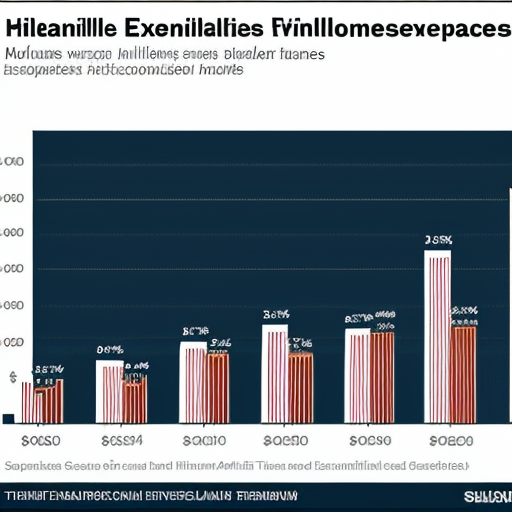The cryptocurrency market has always been notorious for its volatile nature. The recent development of BlackRock’s Bitcoin exchange-traded fund (ETF) shattering trading volume records while BTC itself takes a 6% tumble is one such instance that highlights the intriguing contradictions inherent in this burgeoning field.
BlackRock, a leading investment management corporation, recently launched its own Bitcoin exchange-traded fund (ETF), which has experienced an impressive surge in trading volume, reaching $3.9 billion. This comes despite a 6% dip in the price of bitcoin itself. The iShares Bitcoin Trust also saw a notable increase in traded shares, hitting 99.3 million, surpassing its previous record. This seemingly counterintuitive phenomenon raises questions about the relationship between the performance of cryptocurrencies and their related investment products during market downturns.
The trading volume of BlackRock’s Bitcoin ETF has seen an unprecedented surge, indicating a strong demand for institutional exposure to the digital asset class. Despite bitcoin’s recent drop, it seems that large-scale investors are still keen on diversifying their portfolios with cryptocurrencies through these investment vehicles. This could be attributed to the perceived safety net provided by ETFs and the trust they instill in potential investors. These institutional players view the volatility of bitcoin as an opportunity rather than a threat, potentially hinting at the growing maturity of the crypto market.
The outperformance of BlackRock’s Bitcoin ETF might also be due to the underlying structure of these financial products. ETFs often provide investors with indirect exposure to cryptocurrencies, avoiding some of the direct risks associated with holding actual digital assets. Institutional players, especially those subject to stringent regulatory environments, are more comfortable investing through ETFs compared to owning bitcoin directly. This dynamic is expected to spur further interest in such financial products that provide a degree of safety and liquidity, even amid market volatility.
BlackRock’s success might also be indicative of the growing acceptance of Bitcoin as a legitimate investment asset. The involvement of such a prominent player as BlackRock signifies the mainstream adoption of cryptocurrencies by traditional finance. This could further legitimize digital assets in the eyes of skeptics, fostering broader acceptance.
The discrepancy between bitcoin’s price decline and the growth of Bitcoin ETFs indicates that the demand for crypto exposure is not solely tied to the performance of the asset itself. Instead, it highlights the potential role of these investment products as a separate asset class, detached from the direct influence of BTC’s price movements. This decoupling could lead to increased institutional interest in digital assets, driving their adoption across various sectors.
This paradoxical situation could be seen as a silver lining for crypto enthusiasts. Despite bitcoin’s decline, the ETF’s success points towards an increasing institutional interest in digital assets. As more players from traditional finance enter this space, it may pave the way for greater regulatory clarity and mainstream acceptance of digital assets.
The dichotomy between BTC’s performance and the ETF’s growth could also be due to differing investment strategies. Some investors might view the recent dip as an opportunity to buy the dip, while others prefer indirect exposure through ETFs. This could broaden the crypto market’s appeal, attracting a wider range of investors with varied risk tolerances and investment strategies.
Despite bitcoin’s fall, BlackRock’s Bitcoin ETF has proved its resilience, demonstrating that even during downturns, interest in digital assets remains strong. This could lead to more institutions exploring this space, thereby driving innovation and further development of the market.
In conclusion, despite bitcoin’s 6% drop, BlackRock’s Bitcoin ETF breaking trading volume records signifies that institutional interest in digital assets is unabated. This could be a catalyst for broader adoption and legitimization of cryptocurrencies. The market’s volatility might become less daunting as it matures and attracts more diverse investors, leading to greater acceptance and regulatory clarity.





Leave a Reply